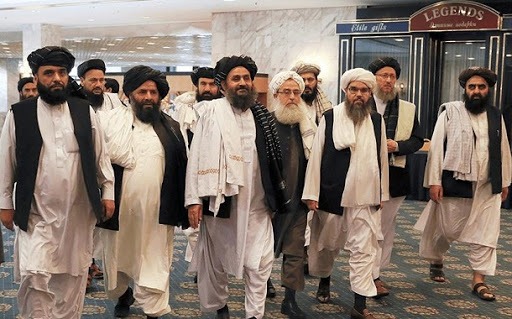Speaking in an interview with the website of the Strategic Council on Foreign Relations, Farzad Ramezani Bonesh, referred to the continuing violence in Afghanistan simultaneously with the talks between the Taliban and the government in that country, adding: Looking at the geography of military and political developments in Afghanistan, it is clear that in recent months, since the convening of the Istanbul Summit in Turkey and the continuation of talks on the presence of the Taliban and all political currents to create a new kind of political structure in Afghanistan, the Taliban is trying to gain the most in military, security and political dimensions.
Recalling that the Taliban has been tasked with negotiating with the Afghan government under a peace agreement with the United States, he added: With the reduction of NATO and US forces in Afghanistan and their gradual withdrawal in the coming summer, senior Taliban officials have concluded that if they are expected to attend the decisive meeting for the division of power, it will be better for them to make the most of their military power card, and make as much progress as possible in the provinces of that country, and even capture some cities.
Taliban seek to gain ground by escalating violence
The expert on Afghan affairs noted: Creating a psychological atmosphere in their favor is another goal of the Taliban in military operations in recent weeks, adding: It seems that violence, killing of civilians and armed operations are the basis for gaining points and presence and power in the negotiations
Ramezani referred to the European Parliament resolution emphasizing that the Taliban preferred to continue the war rather than negotiate with the Afghan government, and that their attacks aimed at occupying government-controlled areas had increased significantly since the start of inter-Afghan talks, saying: The group has tried in the last two months, by creating direct and indirect conditions, as well as refusing to attend the Istanbul Conference, under various pretexts such as the month of Ramadan, to participate in the negotiations with a fuller hand and receive more concessions from the United States and the two main factions in Afghanistan and practically prove their demand their own way.
Legitimacy of Taliban being questioned with violent acts
As for the questioning of the Taliban’s legitimacy, regarding the violent actions that have led to the killing of the Afghan people, Ramezani said: The Taliban do not have legitimacy among all Afghan citizens. Even from a religious point of view, the view of the Hazaras, the Shiites of Afghanistan and important sections of the people of that country, from the supporters of secularism to the Hanafi religious view, have no positive outlook towards the Taliban.
Majority of Afghans do not view Taliban positively
Referring to some reports that even if we consider the number of the Taliban to be 80,000 this group constitutes 0.002% of the people of Afghanistan, he continued: However, in recent years, the Taliban has tried to gain some influence among major ethnic groups such as the Tajiks, the Uzbeks, and Hazaras, and to include some Turkmen and Baluch figures in its structure to show a comprehensive and homogeneous view of the country’s ethnicities and religions, clearly the majority of Afghan citizens do not have a positive outlook of the Taliban’s ideological framework as well as their goals and aspirations.
Referring to the achievements of Afghan society, including in the areas of media pluralism and freedom of the press, increasing literacy rates, freer communication abroad and the socio-political presence of women, the expert on Afghanistan affairs said: That country is significantly different from the past 20 years and has experienced very wide-ranging developments. Those developments have changed the way we look at the Taliban, and in fact a significant part of the country’s urban population does not have a positive view of them. In the villages, those changes are very significant.
Ramezani also noted that the Taliban still have influence and power in important parts of southern and eastern Afghanistan and are trying to infiltrate other parts as well.
Taliban’s responsibility towards violence
Emphasizing the Taliban’s responsibility as a group claiming a share of power in the face of escalating violence in Afghanistan, he added: The Taliban is trying to get the most points from the two main factions of the government during the inter-Afghan peace talks and display themselves as the claimant and having the most share in any form of the future political structure of that country.
The expert on Afghan affairs stressed: The logic and view of the Taliban on the issue of increasing attacks in different parts of Afghanistan and explosions in some urban and rural and remote centers and attacks on security areas is that they try to use military attacks as a tool to increase their weight and their share in negotiations as well as influence in other densely populated cities and regions.










0 Comments